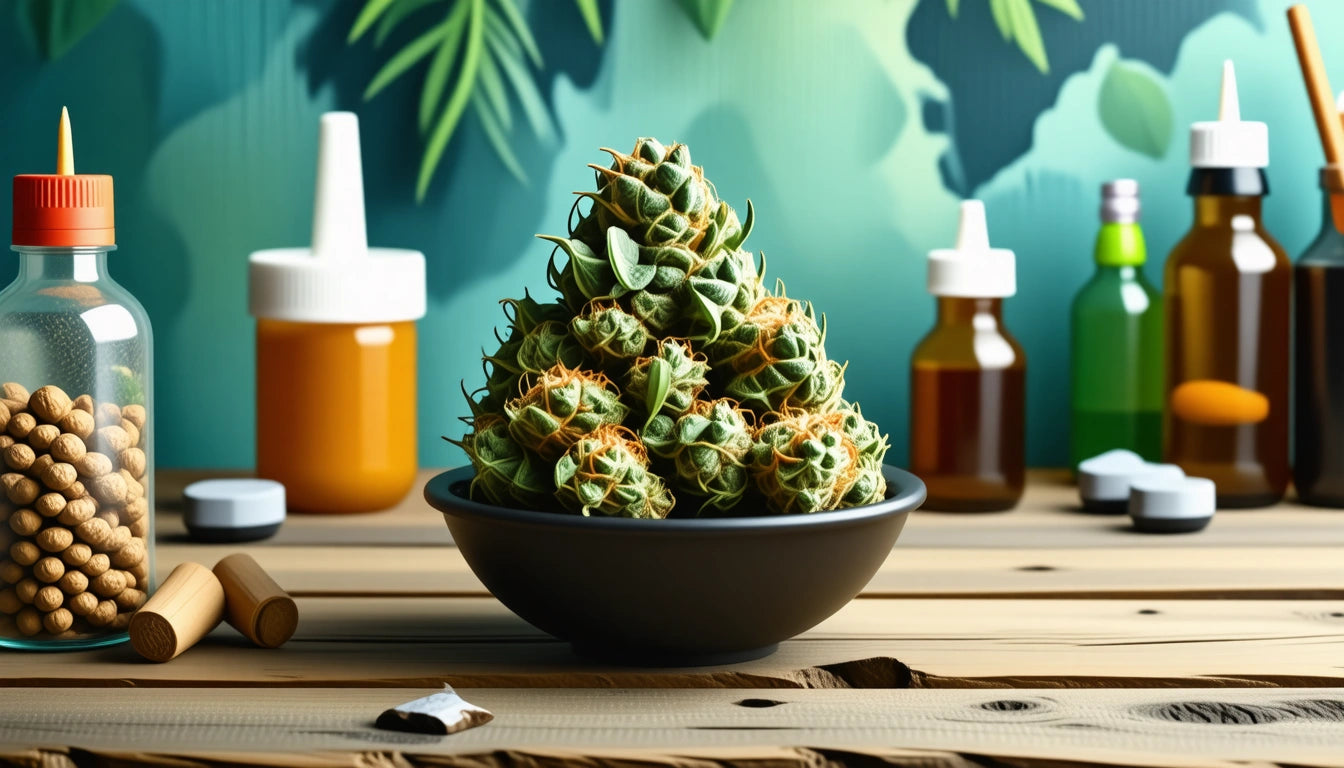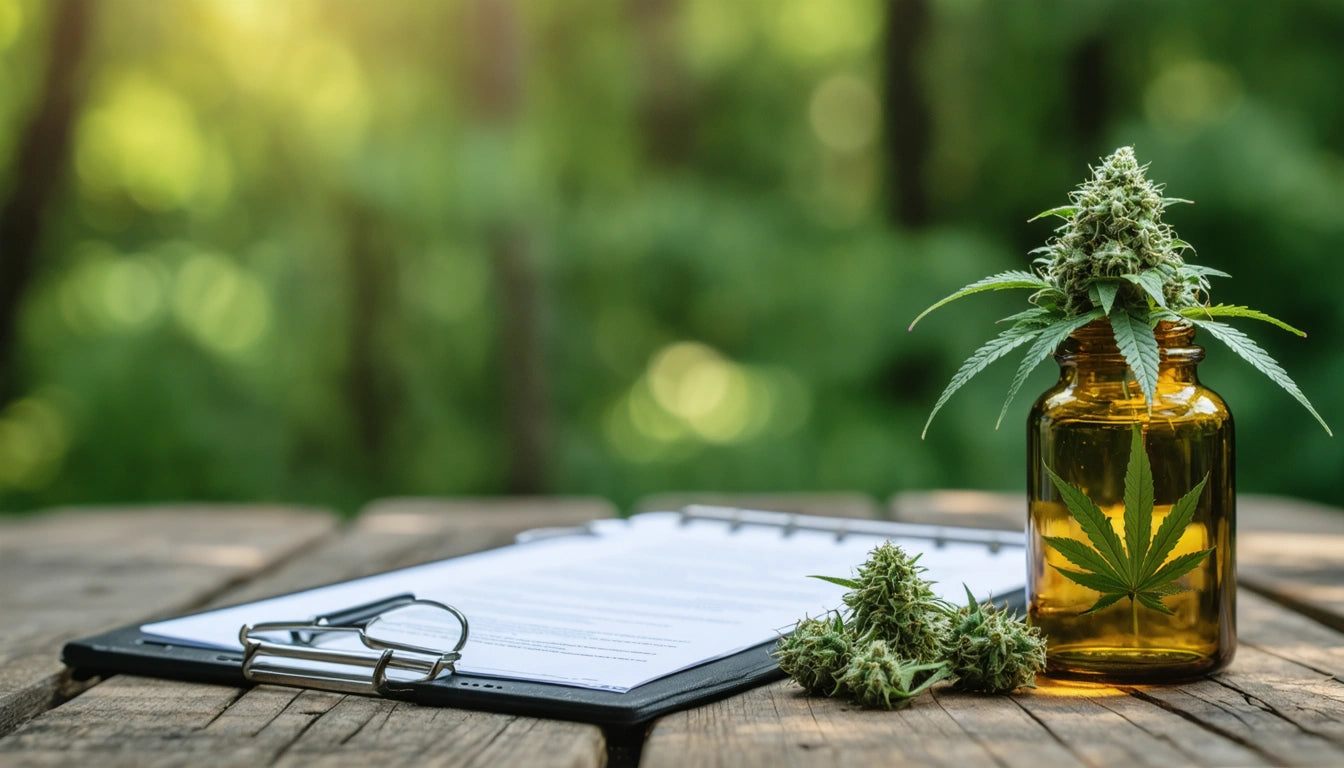Table of Contents
Understanding Why You Don't Feel High From Weed or Experience Unexplained Highs
Cannabis affects everyone differently, and many users occasionally encounter situations where they either don't feel the expected effects or experience sensations similar to being high without recent consumption. These experiences can be confusing and sometimes concerning, but they're often explained by science, physiology, and product factors.
Reasons You Might Not Feel High From Cannabis
When cannabis isn't producing the expected effects, several factors may be responsible.
Tolerance Development
Regular cannabis use leads to tolerance as your endocannabinoid system adapts to frequent cannabinoid exposure. Studies show that frequent users often experience diminished effects over time as CB1 receptors become less responsive to THC.
Improper Storage and Degradation
THC degrades when exposed to oxygen, light, and heat. Improperly stored cannabis loses potency as THC converts to CBN, which produces more sedative and less psychoactive effects. Using proper storage containers with secure caps can significantly extend your product's potency by preventing air exposure and maintaining freshness.
Low-Quality or Mislabeled Products
The cannabis market contains products of varying quality. Some may have lower THC content than advertised or might have degraded before purchase. Lab testing discrepancies can also result in inaccurate potency information.
First-Time Use Phenomenon
Many first-time users report not feeling high. This may occur because:
- The endocannabinoid system needs to be "primed" to recognize and respond to cannabinoids
- Inexperienced users may not recognize the subtle effects
- Improper inhalation techniques prevent effective absorption
Understanding Unexpected Highs Without Consumption
Conversely, some people report feeling high without recent cannabis use. This phenomenon has several potential explanations.
THC Storage in Fat Cells
THC is fat-soluble and can be stored in fat cells for weeks after consumption. During periods of fat metabolism (exercise, fasting, stress), small amounts of THC may re-enter the bloodstream, producing mild intoxication effects.
Endocannabinoid System Fluctuations
Your body produces endocannabinoids that interact with the same receptors as cannabis. Natural fluctuations in your endocannabinoid levels can sometimes mimic mild cannabis effects, particularly during stress, exercise, or after consuming certain foods.
Psychological Factors
The placebo effect and state-dependent memory can create sensations similar to being high. Being in environments or with people associated with past cannabis use can trigger memory-based responses that feel like mild intoxication.
Individual Factors Affecting Cannabis Response
Why is weed not getting me high when it affects others? Your unique physiology plays a significant role.
Metabolic Differences
Individual metabolism varies significantly. Some people naturally process cannabinoids more efficiently, either experiencing stronger effects or metabolizing THC too quickly for noticeable effects.
Genetic Factors
Research indicates genetic variations in the CB1 receptor and enzymes that metabolize cannabinoids can dramatically alter individual responses to cannabis. These genetic differences explain why cannabis effects vary so widely between individuals.
Existing Health Conditions
Certain health conditions and medications can interfere with how cannabis is processed. Conditions affecting the endocannabinoid system or liver function may particularly impact your experience.
Product Quality and Storage Considerations
The cannabis product itself significantly influences your experience.
Cannabinoid and Terpene Profiles
Different strains and products contain varying cannabinoid and terpene profiles. Some combinations may produce stronger effects than others due to the entourage effect, where compounds work synergistically.
Consumption Method
Your consumption method affects onset time, intensity, and duration:
- Inhalation (smoking/vaping): Rapid onset (minutes) with shorter duration
- Edibles: Delayed onset (30-90 minutes) with longer, potentially stronger effects
- Tinctures: Moderate onset (15-45 minutes) with medium duration
Understanding these differences helps set appropriate expectations for each consumption method.
Optimizing Your Cannabis Experience
If you're consistently not feeling the desired effects from cannabis, consider these evidence-based approaches:
Tolerance Management
Take a tolerance break of 1-2 weeks to reset your endocannabinoid system's sensitivity. Alternatively, try microdosing or using less frequently to maintain lower tolerance levels.
Product Selection and Storage
Choose high-quality products from reputable sources with verified lab testing. Store cannabis properly in airtight containers away from light and heat to preserve potency. Experimenting with different cannabinoid ratios may also help you find what works best for your body.
Mindful Consumption
Pay attention to your consumption environment, mindset, and physical state. These factors can significantly influence your experience. Some users report enhanced effects when in comfortable settings or when consuming on an empty stomach.
Understanding the complex interplay between your body, the cannabis product, and environmental factors helps explain why experiences vary so dramatically between individuals and even for the same person over time. By considering these variables, you can better predict and potentially improve your cannabis experience.











Leave a comment
All comments are moderated before being published.
This site is protected by hCaptcha and the hCaptcha Privacy Policy and Terms of Service apply.